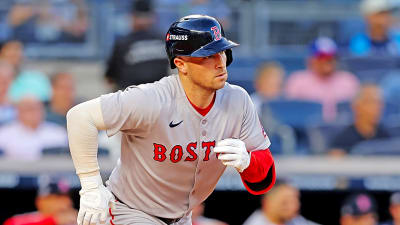
The Minnesota Timberwolves have a problem. They can’t seem to close games.
A Disaster in Phoenix
For the second straight outing, the Timberwolves squandered a game they should’ve controlled wire-to-wire. Friday night in Phoenix, Minnesota led by eight with 50 seconds remaining— only to unravel in stunning fashion. Miscommunications on defense, jittery turnovers, and missed free throws paved the way for a brutal 114–113 loss.
Across their final four possessions, the Wolves turned it over twice, missed both free throws, and came up empty on a potential game-winner.
This wasn’t one player melting down. It was a complete team failure.
A Calamity in Sacramento
Monday night in Sacramento offered déjà vu. The Wolves largely dictated the action, held a lead as large as 14, and were up 10 with 3:04 to go. But instead of tightening the screws, Minnesota got comfortable.
Anthony Edwards began dribbling the air out of the ball while teammates stood and watched. The offense stalled into one-on-one isolations. The defense lost focus. And the Kings slowly chipped away thanks to DeMar DeRozan, Keegan Murray, and Malik Monk’s excellent shot-making.
Once the game hit overtime, the momentum had fully swung. The Wolves looked shaken by a second straight collapse and fell 117–112.
This is becoming a troubling trend: coughing up leads against beatable teams, committing avoidable turnovers, leaning into hero ball, and losing defensive discipline. It’s not the profile of a team aiming at the Finals.
So… what’s actually going wrong?
The Point Guard Question
Is the root of the issue the point guard position?
Mike Conley, 38, has been fine in his 20-ish minutes per game. He’s shooting above 40% from deep, though it’s only translating to about one made three per night. Inside the arc, he’s at a career-worst clip. His steadying presence remains valuable, but he’s more turnover-prone this season and has become the team’s biggest defensive target for opponents.
Rob Dillingham has shown flashes of burst, creativity, pick-and-roll savvy, and shotmaking. But they’re still just flashes. His decision-making wavers, the shot comes and goes, and while he competes defensively, the physical limitations are real.
Pretend Point Guards
Because of their inconsistencies, head coach Chris Finch often closes games with neither of the true point guards on the floor. That responsibility shifts to Edwards and Julius Randle— capable but not natural organizers of an offense.
Both can create. Neither is a reliable possession-by-possession manager. Late-game offense bogs down as they veer into isolation and difficult self-created shots. It’s a structural problem as much as an individual one.
His Youth is Showing
Randle deserves part of the blame, especially for some rough late-game sequences. But more of it falls on Edwards.
His slow, indecisive, dribble-heavy approach in Sacramento was egregious. Combined with the lapses of focus in Phoenix, it’s fair to ask whether Edwards’ youth is still showing. He’s 24— an elite scorer, but not yet a fully mature closer. And in both collapses, he seemed to assume the game was already won.
Coaches Need to Coach
Edwards, despite dropping a combined 84 points in the two losses, must own his share. But so must Finch and the Timberwolves coaching staff.
Their job is to teach discipline, manage tempo, control momentum, deploy the right lineups, and emphasize the right priorities. Late-game execution is as much preparation as it is talent, and right now the Wolves aren’t prepared enough.
Anthony Edwards last 2 games:
84 PTS
30/58 FG
10/22 3PT pic.twitter.com/0cGv0Sj1CK— Ahmed/The Ears/IG: BigBizTheGod
(@big_business_) November 25, 2025
Plenty of Time
The Wolves are 17 games into the season with a 10–7 record— solidly in playoff position. These losses exposed clear issues: shaky point guard play, disjointed late-game offense, and gaps in leadership both on the floor and on the sideline.
But none of these problems are fatal. Dillingham may stabilize. Conley may settle in. Edwards and Randle may grow more comfortable initiating late. The staff can tweak strategy. This is a team that started slow last year before rounding into form.
A major test looms against the NBA-leading Oklahoma City Thunder. After two straight collapses, the Wolves’ response may tell us a lot about who they really are— and who they’re capable of becoming.
More must-reads:
- Hornets announce jersey retirement for franchise legend
- Jonathan Kuminga makes NBA's least surprising trade demand
- The 'Most passes thrown by NFL season' quiz
Breaking News
Trending News
Customize Your Newsletter
 +
+
Get the latest news and rumors, customized to your favorite sports and teams. Emailed daily. Always free!








